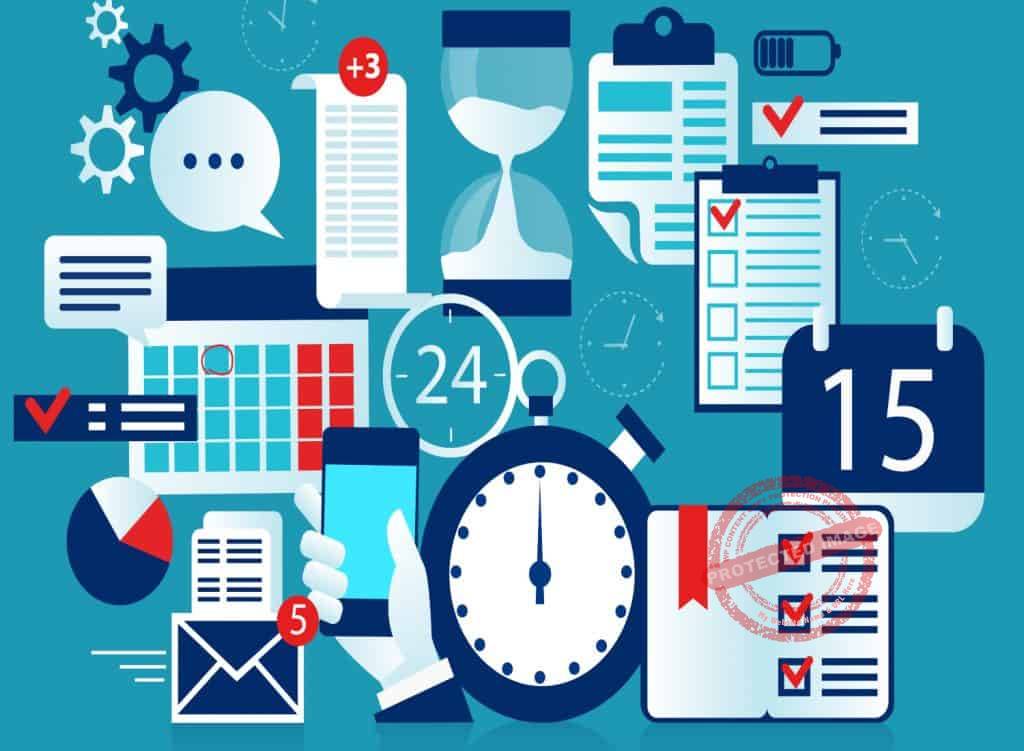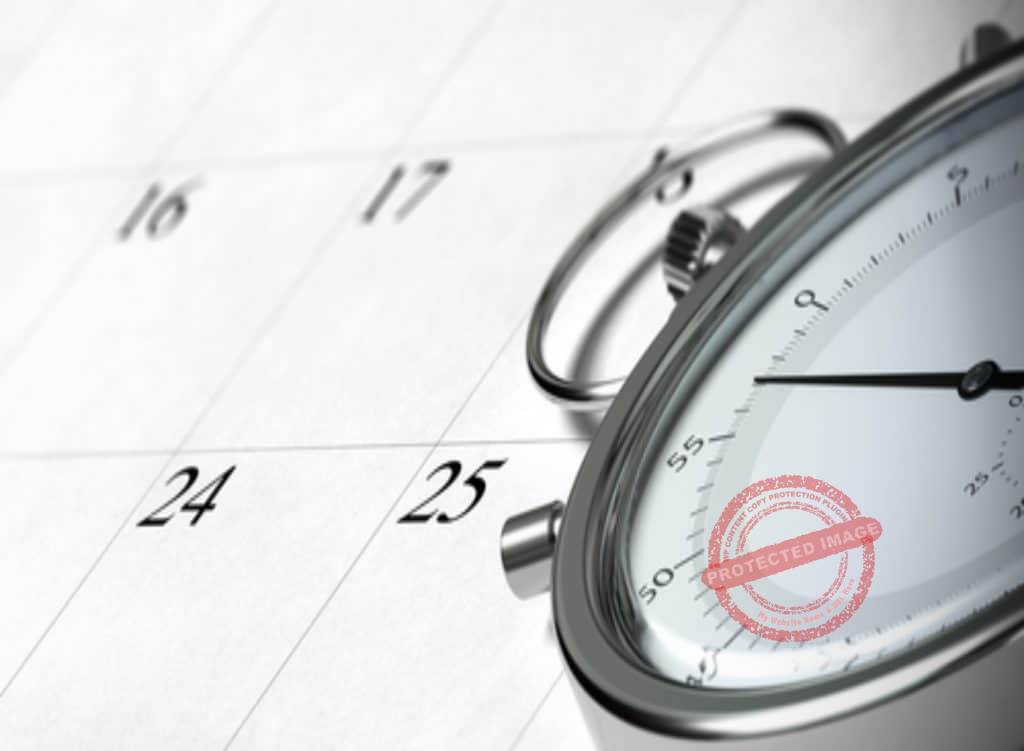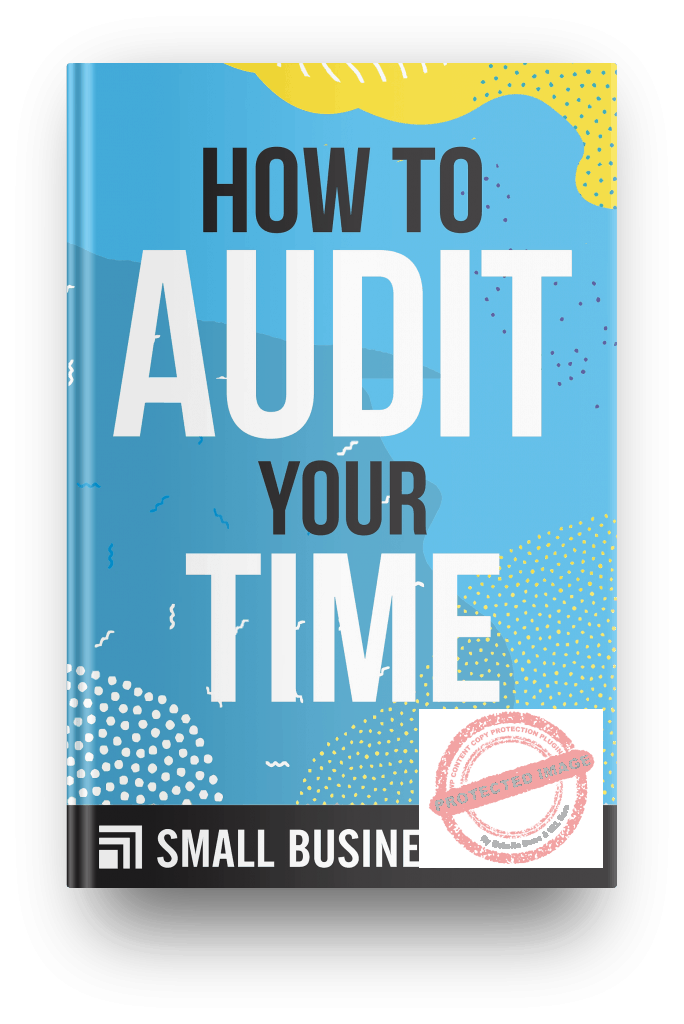Do you know time is precious when running your own business? Of course, as a business owner, you would gladly trade anything just to have a couple more hours added to your day. But unfortunately, time is not a tangible product and that’s why you should learn how to audit your time and know where all your time goes.
If you do not know how to do a time audit, you will often feel frustrated, tired, and confused.
The reason is that at the end of a long, tiring day, you might discover that you barely made it through half of your intended workload.
You might have had a full day planned ahead of you, with everything that you need to be done scheduled at a specific time.
But then suddenly life happens.

You get pulled into emergency meetings, prolonged phone conversations, sudden appointments, and other kinds of distractions that take you away from your work.
The only option left that you can think of to make up for all that lost time is to work overtime.
This, however, means you have to take away from the time meant for your family.
But, this is not the only option you have, you do not have to burn the candle at both ends.
You just need to take back control of your time.
You need to do a time audit.
How to Audit Your Time – Where Does All Your Time Go?
What Is a Time Audit?

This is just like the dreaded tax audit that your business gets occasionally.
However, instead of money, doing a time audit is identifying the details of how you spend your time.
There is often a huge difference between how you think you spent your time compared to how you actually spend your time during the day.
Doing a time audit will let you know exactly where you are wasting your time.
This will help you to make the necessary adjustments to your schedule.
In addition to that, you get more work done, but in less time than you usually do.

You should track your time usage for at least a week.
Any information gathered, can then be used to make necessary changes in your workday.
This will help you to be more efficient.
Trust me, knowing how to properly use time audit will do wonders for your business in the long run.
You will also have more free time to spend with your family; it’s a win-win situation.
How Long Should You Spend On A Time Audit?

The length of your audit will depend on how you spend your days.
If your days are pretty much monotonous, you can get by with an audit lasting three to four days.
This is probably more than enough time for you to discover how you have been spending your precious time.
If your daily schedule is quite erratic, then a time audit that lasts at least a full working week is needed.
This is especially helpful for parents who accompany their kids to various activities.

Also, for small-time business owners who have to run a lot of errands since there are not that many employees.
For example You need to get an idea of how much time you spend behind the wheel of your car.
If you are spending more time delivering your goods rather than at the office making money, it might be more viable to get a delivery driver instead.
When To Do A Time Audit?

You should try to schedule your time audit during a typical week at work.
Never do a time audit during your business’s lean times, or during the busiest season.
You should never do an audit when you have too many things to do, nor if you do not have anything on your plate.
How To Do A Time Audit?

You need two things for a successful time audit:
- A means to keep track of your tasks
- A means to remind you to keep track of your tasks
Here are the actual steps to running a time audit:
How To Track Your Time

There are lots of different time tracking tools that you can use to gather relevant data on your time usage.
The results that you will get will ultimately rely on the amount of effort you are willing to put into this study and the level of detail that you want to gain.
Here are some tools that you can use to do a time audit.
A To-Do List (Either Use A Smartphone App Or Old-Fashioned Pen And Paper)
![]()
If you are using a modern smartphone, or even some of the later model feature phones, you already have a basic list-making app.
You may already have been using lists to prepare for your work day.
But, this only gives you an insight into the tasks that you do every day, it does not give you any information regarding how much time you spent on them.
A Daily Planner
![]()
If you are one of those people who like to collect planners from coffee shops, but not really the kind of person who actually uses them for keeping track of time, then this is the best time for you to start.
However, instead of planning out your day, you will be doing the opposite, which is you will be listing the things that you are doing at the time.
Daily planners have pre-lined pages that divide the day into 30-minute increments, which is more than enough for you to list whatever it is that you are doing.
You need to bring your planner along with you wherever you go.
So, you should use one that is portable.
A Calendar
![]()
Your daily calendar is one good time tracking tool if that is your chosen method of scheduling your days.
The great thing about using a calendar is that you can find out the exact activities wasting your time.
These could be meetings, phone conversations, and others.
These tasks all take time away from you.
The problem here is that you are entering the events in yourself.
So, you might have been too optimistic while setting up your schedule.
In addition, you might already have set chunks of time for your tasks.
Which are only intentions as there is no way to know exactly how much time you are spending on the tasks.
A Time-Tracking App/Program
![]()
There are many time audit apps that you can install in your computers and smartphones to keep detailed track of how you spend your day.
The great thing about this method is that these apps usually run in the background.
You do not have to write down what you were doing at the time.
The app will check which other apps and programs you were using at the time.
The problem here is that although you know what apps you were using during a specific amount of time, you do not know what tasks you were doing using a time audit app.
Reminding Yourself To Keep Track Of Your Tasks
![]()
One of the most difficult and utterly annoying steps to running a time audit is reminding yourself that you are keeping track of time.
Doing a time audit will require quite a lot of discipline on your part.
But if you are actually serious about making positive changes in your life then it will not be so difficult.
If you are the type of person who has to be reminded to drink water every so often, then you will need to set up a system that will remind you to record your current time usage.
The easiest way to do this is to set a series of alarms on your phone.
You need to have a lot of discipline to track your time if you want to get good data.
![]()
You could start tracking your time by setting an hourly alarm and then recording whatever you are doing when the alarm goes off.
If it seems that an hourly alarm is too short, you can change it into every two hours.
Now, if you have trouble remembering, you can make your alarms closer together, like thirty minutes in between.
If you know that you will be spending the next three hours going on a movie date and dinner with your spouse, then you should turn off your alarms.
If you will only need to trace your tasks during the workday, you need to set alarms from 9 to 5, or whatever your usual working hours are.
Analyzing Your Data
![]()
Regardless of whether you track your tasks for a week or a month.
Once all the data is in, then you need to start analyzing which tasks are wasting your time.
Examine your data, look closely at how you spent your time.
Place significantly more attention on the tasks that took the longest.
Take a look at each of your tasks and ask yourself:
- Which of these tasks took too long than they should?
- Are there things that took you an hour, but you could realistically have done them in just fifteen minutes?
- What tasks were actually finished faster than expected?
- Are there non-work related things that took up a lot of time?
- Checking social media?
- Chatting with co-workers?
- Browsing the net? And others.
- Were there things that you did not take into account during this monitoring period?
- Did you take into account the time used for eating lunch?
- How about the time you spent commuting to work?
- Were you able to complete the major goals that you set for yourself at the beginning of the month?
- How many of your commitments were you able to fulfill?
The moment you learn how to audit your time, you find out which of your tasks took the longest.
You will also know which ones are wasting most of your time, then you are ready for the next phase, which is creating a schedule that actually works.
Creating A New Schedule Based On The Data You Gathered
![]()
Now that you somehow know how long it takes you to do certain things.
You should take out your planner and start scheduling your upcoming days.
Use the data you have gathered to schedule realistic times for each tasks.
Set aside a huge block of time for you to achieve the biggest goals that you have for the day.
Then use the average times from your tracking app for scheduling the other tasks.
If the biggest goal you have needs the most attention, schedule it during the times when you are most alert.
Some people like to tackle the large stuff early in the morning, while others feel they are more alert in the early afternoon; you do you.
![]()
You might be surprised to see that you can actually fill up your days rather fast with all of the things that you need to do, or you think you need to do.
This is the time when you will realize that you have not been setting realistic goals lately.
This could be one of the reasons why you do not seem to have enough time in the day.
Set your schedule in such a way that it will be possible for you to meet your goals.
Take into account the time you need to commute to and from work, time for lunch and your morning and afternoon break, and other activities.
This will somewhat ensure that you will be able to avoid doing idle tasks that are just a waste of your time.
When you find tasks that take you too long to finish, find ways on how you can minimize the time spent on said tasks.
![]()
You can find ways that involve technology.
You can automate the boring parts of your day, like the ones that are pretty repetitive and do not require much brainpower.
When the tasks are actually too difficult, then delegate the tasks to a team of your workers so the task is done faster.
You do not have to tackle all tasks on your own.
Learn to delegate other tasks to your employees.
Do not spread yourself too thin, you will never finish anything that way.
It’s important that you set aside time for your lunch, breaks, and also for unforeseen interruptions throughout the day.
You need to take a breather from time to time or else you will get burned out after just a couple of days.
![]()
The time that you set for unforeseen distractions is important because you will most likely be interrupted by other people.
If you do not have time blocked for emergencies like this, it will be like throwing a wrench into the works.
This can make you fail to reach your other goals because something unexpected came up so you have to use the time set for your other tasks.
Set More Realistic Goals For Next Month

Now that you have properly audited your time, you are now set for success.
You no longer feel the compulsion to rush into things now that you know how long it will take for you to finish tasks.
You will no longer set a goal to finish certain tasks in two days when you know that it will take you at least two weeks with your busy schedule.
When you keep your goals realistic, you will be more successful than you were before.
With realistic goals in place, you know where you used to waste so much time.
You should now be able to create space in your schedule for the important things.

Now you know your personal capabilities. You will be able to identify potential time management problems before they even come up.
This will help you to proactively do something to prevent them from happening.
You will also know when it is necessary to outsource some of the tasks to make it run more efficiently.
Finally,
Unlike the other type of auditing, it is actually pretty refreshing when you are finished with your time audit.
It is like you are looking at yourself through fresh eyes.
Now you know your own capabilities.
You no longer overestimate yourself.
You are reducing the risk of being disappointed by failing to reach the goals you set out for yourself.
Now you have a grasp of the number of things that you can do for your business in the limited number of hours you have per day.
You will actually learn how to properly manage your company.
Also, your employees will not be as stressed as they once were because you set deadlines that are just unreasonable.
This makes for a happier, more productive work environment.
Click on Buy Now For a PDF Version of This Blog Post
 |










